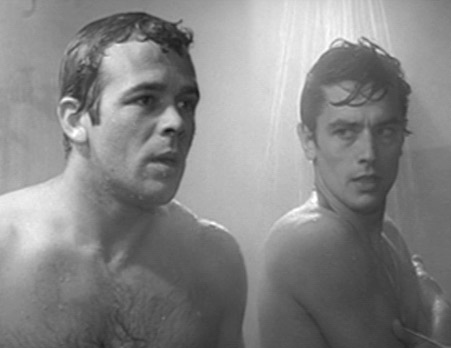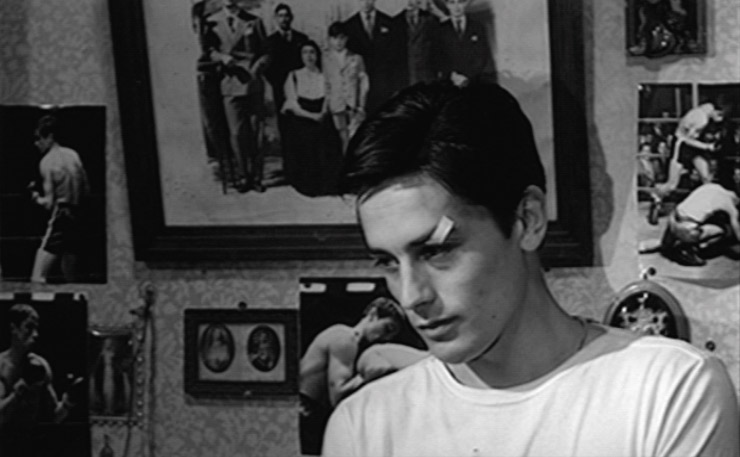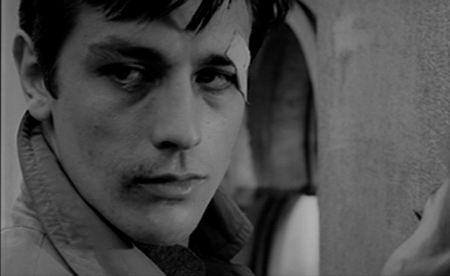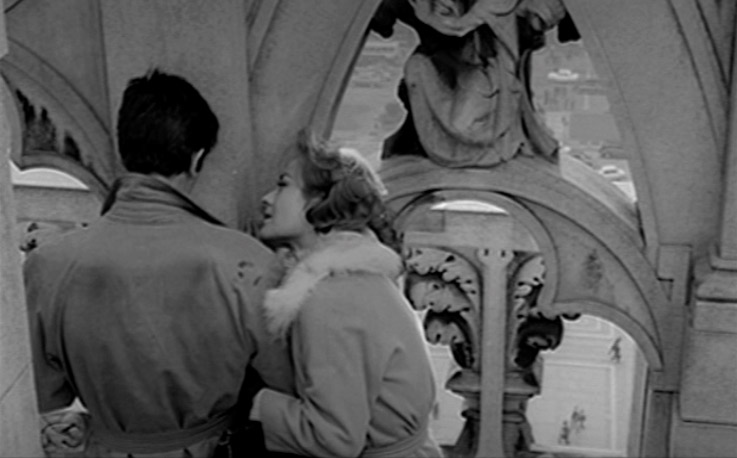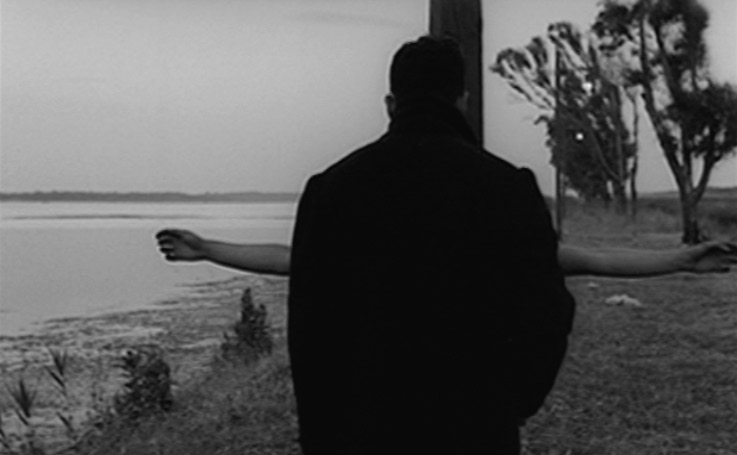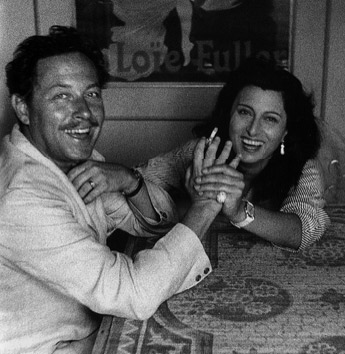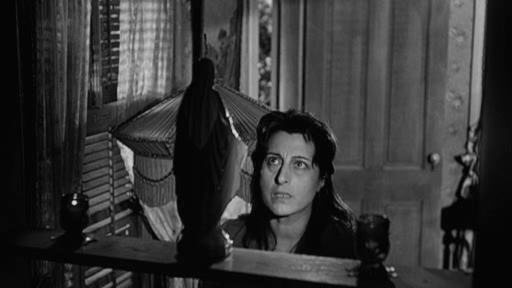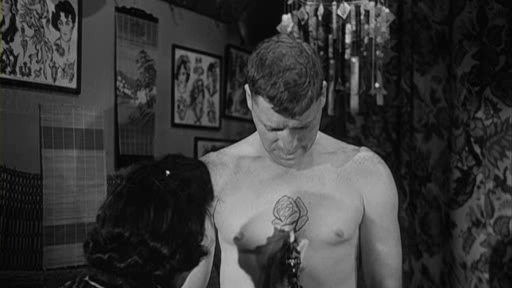Thoughts I Had... About 5 Recent Movie Dads
 Sunday, June 17, 2012 at 1:30PM
Sunday, June 17, 2012 at 1:30PM HAPPY FATHER'S DAY to all the readers celebrating their dad today whether or not he's a movie-lover. Especially big props go out to the proud papa readers out there raising their own movie-mad tots. (Please tell me you're starting them young! If so, I approve.)
Today is my first father's day without my own dad so to distract me from this distressing realization which ruined an otherwise wonderful morning chez moi, I wrote this impromptu brain vomit list. Feel free to share your own in the comments...
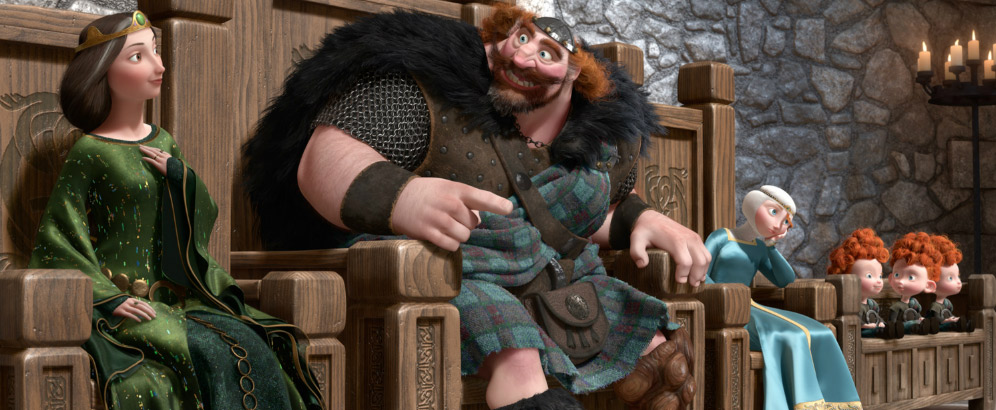 The royal clan in BRAVE (2012)
The royal clan in BRAVE (2012)
Thoughts I Had on the Six Most Recent Movie Dads Screened
"King Fergus" (Billy Connolly) in BRAVE
I don't want to give too much away about Pixar's first "princess" movie, but let it suffice to say that I was very surprised that the Queen and not just the princess is so major in the narrative. It really is their first GIRL movie (...though not quite bent or rocking enough to be their first GURL or GRRRL movie). The movie's soul and heroism are female-centered but Brave also features a large collection of proud papas starting with the formidable King Fergus his leg legendary eaten by a fierce black bear. He may be a warrior but he is a big softie when it comes to the women in his life. The other proud dads on display -- each suggesting that their first born son deserves Princess Merida's hand -- are mostly comic relief and the animators clearly had great fun detailing the similarities, differences and delusions in the father/son dynamics.
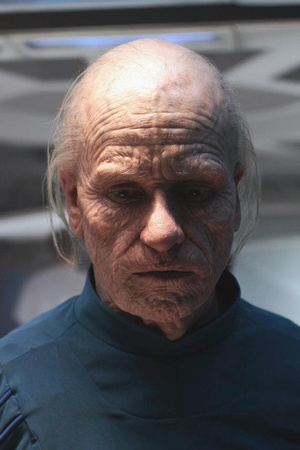 Ancient ancient Guy Pearce in "Prometheus""Peter Weyland" (Guy Pearce) in PROMETHEUS
Ancient ancient Guy Pearce in "Prometheus""Peter Weyland" (Guy Pearce) in PROMETHEUS
SPOILER ALERT. The Evil* Weyland Corporation's ancient dead figurehead is seen only in holograms and flashbacks until he isn't. Ta da! He's still alive. Cyrogenically frozen just like Walt Disney and other Empire Builders and Iconic World Changers are always rumored to be at one point or another. You didn't see saw that coming, I take it. What I didn't see coming was that "David" (Michael Fassbender) and "Meredith Vickers" (Charlize Theron) were essentially siblings. This is completely and wonderfully "duh!" obvious in retrospect given their mutual Aryan iceiness, stiff gaits and weirdly intimate vibe of 'we avoid each other.' Perhaps I was too blinded by involuntary fantasies of a robotic blonde horizontal mambo to realize the fantasy was incestuous.
Of all the scripted and unscripted mysteries of Prometheus the one that bothers me most is Why the Hell Did You Hire 44 Year Old Guy Pearce to play this character when Max von Sydow, Christopher Lee, Peter O'Toole, Sir Ian McKellen and any number of other tall, thin, great elderly actors wouldn't have required an extensive make up prosthetics team to help them act the role. True they're more expensive than make up artists but so is Guy Pearce!
*The "Evil" is silent in Evil Weyland Corporation. It's the Corporation and Aliens so everyone understands this.
"Darryl Van Horne" (Jack Nicholson) in THE WITCHES OF EASTWICK
Jack's horny devil is very interested in impregnating the beautiful lonely big-haired movie star goddesses in this supernatural 80s comedy but he doesn't get to share custody. Who should play his sons in the imaginary sequel I long for?
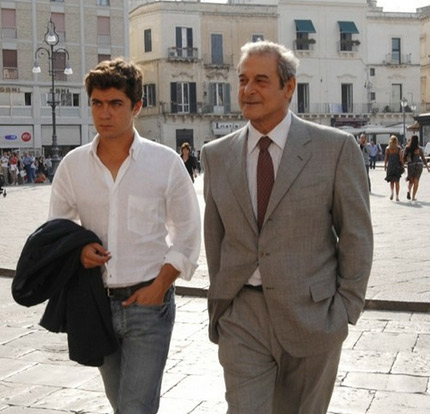 Gay Son and Ignorant Dad in "Loose Cannons""Vincenzo Cantone" (Ennio Fantastichini) in LOOSE CANNONS
Gay Son and Ignorant Dad in "Loose Cannons""Vincenzo Cantone" (Ennio Fantastichini) in LOOSE CANNONS
I had never seen this gay comedy from Turkish/Italian director Ferzan Ozpeteck and I think it might be the best of his films. It's the story of the gay son of a traditional family who run a pasta empire. The son fears coming out because his dad Vincenzo is a TOTAL drama queen about the gays. He just can't deal. It's rare to see a coming out comedy with this much gentle needling of homophobia that doesn't feel the need to demonize the people who suffer from it holding on to it (like Vincenzo). Loose Cannon just accepts that some people, some dads, have issues. You gotta be your own man anyway.
Loose Cannons is currently playing on iTunes as part of Focus Features Gay Pride Celebration this month
"Wink" (Dwight Henry) in BEASTS OF THE SOUTHERN WILD
I'm still processing this movie but the father / daughter relationship at its center is heartbreakingly intimate without actual physical intimacy. "Hushpuppy," Wink's daughter, longs for more affection but Wink insists that his six year old live in her own house and fend (mostly) for herself. Tenderness is weakness in The Bathtub...
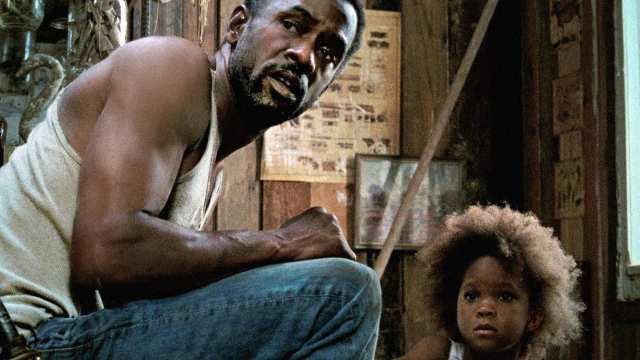
P.S. It's best to know very little about this movie before seeing it so ignore the clips, the trailers, the reviews and just go see it when it comes out. It's a true original and how often do movie theaters play those?! Treasure them.
"Mark" (Kyle MacLachlan) in PEACE, LOVE & MISUNDERSTANDING
Why does Kyle Maclachlan always dick dads / philandering husbands? He used to play so square they're hip guys in stiff suits. When David Lynch abandoned him it all went down hill!
What movie dads have you been watching?




